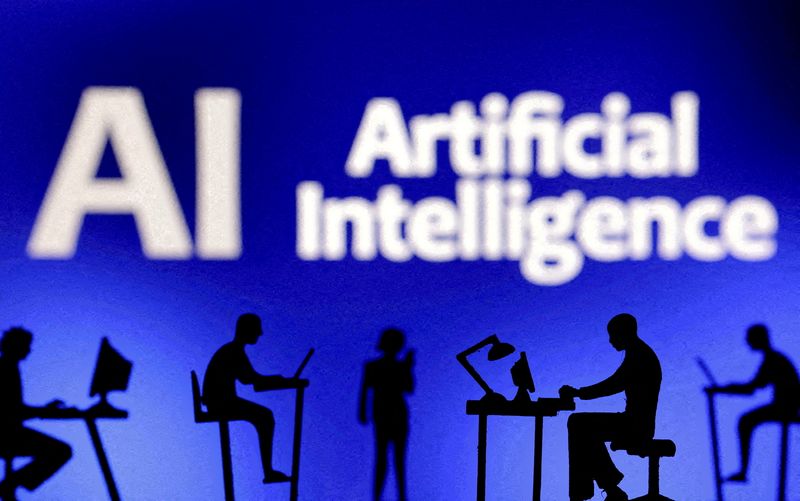By Martin Coulter
LONDON (Reuters) – Last year, a who’s who of world leaders, corporate executives and academic experts gathered at Britain’s Bletchley Park for the world’s first global AI Safety Summit, hoping to reach consensus on the regulation of a technology some warned posed a threat to humanity.
Tesla (NASDAQ:) mogul Elon Musk and OpenAI CEO Sam Altman rubbed shoulders with some of their fiercest critics, while China co-signed the “Bletchley Declaration” alongside the United States and others, signalling a willingness to cooperate despite mounting tensions with the West.
Six months later, the second AI Safety Summit, a primarily virtual event co-hosted by Britain and South Korea, will take place as hype around artificial intelligence’s potential gives way to questions over its limitations.
“There are some radically different approaches…it will be difficult to move beyond what was agreed at Bletchley Park,” said Martha Bennett, a senior analyst at research and advisory firm Forrester, referring to the historic but necessarily broad agreement on AI safety.
Thornier questions around the use of copyright material, data scarcity and environmental impact also look unlikely to attract such a star-studded congregation.
While organisers have trailered an event comparable to Bletchley, a number of its key attendees have turned down invitations to Seoul.
HYPE
As the first summit closed in November, British Prime Minister Rishi Sunak promised subsequent events would be held every six months so governments could keep tabs on the rapidly-developing technology.
Since then, attention has turned from existential risk to the resources needed to fuel AI’s development, such as the vast amount of data required to train large language models, and the electricity powering a growing number of data centres.
remove ads
.
“The policy discourse around AI has expanded to include other important concerns, such as market concentration and environmental impacts,” said Francine Bennett, interim director of the data and AI-focused Ada Lovelace Institute.
OpenAI CEO Altman has suggested the future of AI depends on an energy breakthrough. In February, the Wall Street Journal reported he was also seeking to raise as much as $7 trillion to boost the production of computer chips, a component currently in short supply.
But pinning the future of AI on scientific breakthroughs and…
Click Here to Read the Full Original Article at All News…


